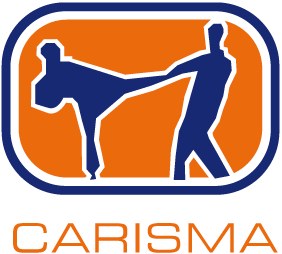Safety
We consider safety one of the most important aspects of a good training session. We aim to instil a culture in our club that promotes safe training practices at all times. At the same time everyone participating in our classes and other training events must be aware that kickboxing involves vigorous physical activity involving close contact fighting, and that injuries do sometimes occur. We require all participants to take personal responsibility for their own safety. This includes informing instructors of previous injuries
or medical conditions that might affect the safety of their participation; stopping exercising if you experience pain, dizziness, excessive fatigue or other warning symptoms; and stopping exercising
and informing your opponent or an instructor if you feel that the level of aggression or force in the training is too high for you. No exercise or activity in our classes is mandatory. Participants should
always exercise their own judgement as to their participation in any activity.
We also require all participants to train and spar in a controlled manner, taking into account the limitations of their own ability (especially for new students) and taking into account the skills, physical size, and strength of their opponent. Our classes are about learning and passing on skills and techniques and improving fitness. They are not about demonstrating an ability to intimidate others, and such behaviour is never tolerated. Kickboxing is a fighting sport with a set of rules that promote safety. The rules include limitations on the types of strikes that can be used, and the parts of the body that may be struck. For example strikes using elbows are not allowed, and it is not permissible to strike the back of the head, or to kick below the belt. CARISMA also occasionally teaches techniques from other styles, such as Multicombat, and techniques for practical self-defence which cannot be used in kickboxing competition.
The way we teach techniques takes into account three goals:
- Learning to use the technique effectively in a fighting situation.
- Ensure the training can be practiced safely between members of any level, physical shape and fitness.
- Instilling good posture, weight shifting, and other practices to avoid long term back, knee or hip pain and long-term disabilities.
To ensure obvious causes of injuries are avoided, all students should:
- Removing watches, rings, spectacles, and other jewellery before practice. They could catch your partner’s hair, skin, or clothing and cause injury to oneself or one’s partner. Any kind of face piercing should be covered with adhesive plaster.
- Keeping your fingernails and toe nails clean and cut short.
- Wearing the correct protective equipment see <a href=”https://carisma.org.uk/overview/uniforms-equipment/”> the equipment page </a>.
- Arrive a few minutes before the scheduled time for the class to ensure you can fully participate in the warm up and stretching exercises at the start of each class.
Health
Practicing martial arts generally speaking improves an individual’s health. At the same time each individual should check with their doctor whether they are suitable for practicing martial arts. If your GP is not competent in the matter possibly a specialist could help. When mentioning the activity you should state: “non full contact practice at amateur level”. People intending to participate to competitions should get a more in depth check-up.
Hygene
I might seem superfluous to say that training implies close contact between a number of sweaty individuals great attention should be paid to hygiene such as:
- Keep a high level of personal hygiene
- Keep your uniform free from any unpleasant odour by washing it at least once a week.
- Take care of your training pads (e.g. gloves): make sure that at to hang them up in a place where they can dry off at the end of each lesson. Pads should never be wrapped up and left in a bag until next session. You can slide a short cardboard pipe (e.g. from kitchen paper rolls) inside the gloves to make sure that air reaches the most inner parts and dry them properly. It is also a very good practice to wash all pads in the washing machine (very low temp, max 30 deg C) once every 10-15 training session. Apart from avoiding bad smell you will help your pads to have a longer life and therefore saving money.

